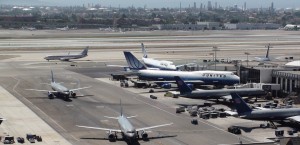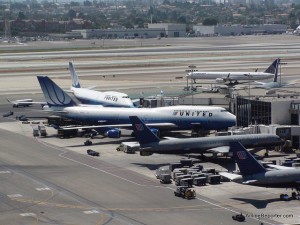The US Department of Transportation announced more regulation on the airline business this week and it has me a bit confused. The airline industry is already one of the most regulated industries in the US and some of these new rules just seem silly. Let’s take a look at them one by one:
Lost Bag Means Bag Fee Refund
I actually like the concept of this — it makes sense to me. If I am paying an airline money to handle my bag, it makes sense that I be refunded that fee if the bag is lost at no fault of my own. However, I am not to keen on the government forcing airlines to do this.
Tarmac Delay Rule to Include International Flights
Even though I love flying, I hate being stuck on the tarmac. I can sit on a plane for 15 hours while flying and be fine since I am making progress. However just sitting on the tarmac going no where just bites. The DOT already has regulated domestic flights cannot be sitting on the tarmac for more than three hours and now extends that to international flights. I am already not a fan of the domestic three hour tarmac rule and even more against international flights.
Not all airports can handle international flights the same. If a flight needs to be diverted to an airport that normally doesn’t handle international flights, it is going to take time to get the proper personnel there.
Now that airlines could face huge fines with international flights to the US, they will be more likely to cancel them. Unlike many domestic flights, which have multiple flights per day, many international flights will only have a few flights per week. That means you could be stranded in another country for days versus being stranded on the tarmac in the US for a few hours.
More Money for Bumped Passengers
Over booking flights always makes sense on paper, but is super annoying when you are the person that gets bumped.
When an airline knows that on average there will be a certain percentage of people that won’t show up for a flight, so they oversell, that makes good business sense. Good business sense doesn’t always means good customer service. The fees will be increased from $400 to $650 for short delays and $800 to $1,300 for longer ones.
It does annoy me that many airlines do not seem to do the right thing when it comes to bumping passengers and quite a few have been fined. Out of all the rules imposed by the DOT, this is the one actually angers me the least.
Disclose All Fees
This seems to duplicate what airlines already do. Maybe I have missed something, but every airline I have ever booked with clearly states on their website what they charge for. Sure some might be a little more tricky than others, but many businesses operate the same way. Have you ever tried to buy a car and get additional fees? Of course.
What is really bothersome is the government is looking to regulate how airlines show their fees. Why does the government feel the need to force airlines to do this, but not other industries?
Add Taxes and Government Fees to Advertised Fares
This one makes the least sense. What other industry is required by the government to include taxes and government fees to their advertised prices?
Most states have tax and people know they will pay tax. Can I walk into a dollar store with $1 and buy something? Nope, where I live I will need $1.09 and I know that. I think this goes to show that the airline business is treated unfairly and “consumer protection” groups are going too far to discriminate against airlines. I just wish the government wouldn’t play along.

